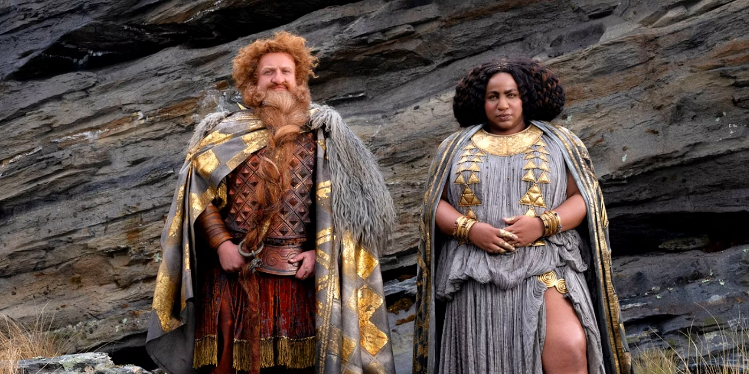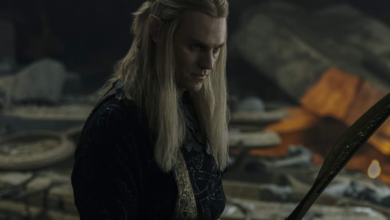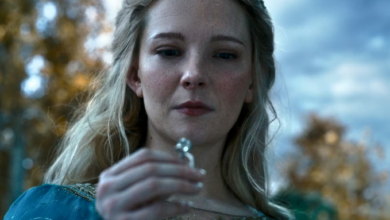Why Rings Of Power’s LOTR Canon Problems Will Be Much Worse In Season 2
The canonical problems with The Rings of Power will be more difficult to solve in Season 2. Here’s why Amazon’s fantasy series is in danger.
The Rings of Power has been suffering from some canonical problems pertaining to J.R.R. Tolkien’s The Lord of the Rings, and they’re likely to be much worse in season 2. The first season of Amazon’s high fantasy series, based on the novels set in Tolkien’s beloved Middle-earth, was already divisive among serious fans. Not only did it take liberties with the Lord of the Rings timeline by condensing it, but it also positioned certain celebrated characters, which are separated by hundreds of years in Tolkien’s works, actively in the same events.
With its high budget, strong performances, and attention to detail, Rings of Power is Amazon’s best fantasy series so far, but it remains to be seen if it can maintain its momentum going into season 2. Issues surrounding the legal rights to Tolkien’s work that would provide context for some of the most important events in Middle-earth, as well as certain creative differences, present unique challenges. At a time when fans have their pick of series with The Wheel of Time and House of the Dragon, The Rings of Power season 2 will need to be its strongest so far.
The Rings Of Power Season 2’s Story Is More Restricted By Tolkien Canon

The Rings of Power’s first season largely took place in the Second Age which, although outlined in The Silmarillion, acted more like appendices. Amazon did not procure the rights for the bulk of the material, which granted the streaming giant a lot more creative leeway but at the same time angered certain die-hard devotees of Tolkien’s works. The overarching story for The Rings of Power’s second season is naturally going to be more restricted the closer it gets to important events such as the forging of the One Ring, Sauron’s war with the Elves, and the Fall of Numenor.
A lot of source material exists for these monumental moments in The Lord of the Rings canon and timeline which is helpful to make the series authentic, but presents its own issues. For one thing, there is an increased potential for contradictions and plot holes that will alienate and anger Tolkien purists. For another, any drastic changes to certain key events could create issues when linking up to either Tolkien’s books or Peter Jackson’s beloved Lord of the Rings trilogy of movies.
Rings Of Power Season 2’s Canon Promise Will Be Hard To Keep

Since The Rings of Power timeline has had to be so condensed, with events that should have taken place hundreds of years apart occurring at the same time, there’s been a vocal outcry from the fans. If The Rings of Power season 2 stays canonical, this should alleviate some of the division among the fandom, but it’s a promise that will be hard to keep. Given how many deviations and drastic changes to original details in season 1, it’s going to be particularly tricky to stay true to canon while at the same time filming a season that appears to flow organically from its predecessor.
The Rings of Power new Mordor origins and the foundation of Mount Doom create figurative and literal fissures in the foundation of the series. Having Celebrimbor and Isildur alive at the same time doesn’t just condense the timeline, it risks making Tolkien’s world-building seem small and rushed. The sprawl to Middle-earth, as well as its complexity, are two of its most daunting and revered qualities, and they will hopefully be maintained as The Rings of Power goes forward, particularly in regards to the Dwarven kingdoms, which have been a series highlight so far.
Rings Of Power’s Rights Situation Makes Keeping LOTR Canon More Difficult

Not being able to draw from The Silmarillion has proven to be one of the most frustrating aspects of The Rings of Power. Amazon may only use what’s in The Lord of the Rings and its appendices, which has made telling a canonically correct Second Age story difficult without contradicting Tolkien’s established lore. Tolkien’s Estate never put the rights to The Silmarillion up for sale because as far back as the late ’60s, when Tolkien sold the rights to The Lord of the Rings originally to the Saul Zaentz Company, they had “matching rights” to it, and possibly The Unfinished Tales
Amazon didn’t approach the Estate to purchase the rights, rather, the Estate explored options for a potential buyer for The Lord of the Rings TV rights. To circumvent the “matching rights” issue created by Tolkien’s sale of The Lord of the Rings film rights to the Saul Zaentz Company, they granted the potential buyer access to more content through direct consultation. As a result, the Estate had the ability to have much more influence over shaping Tolkien’s continued stories in Middle-earth with The Rings of Power than either The Lord of the Rings or The Hobbit trilogies.



